Here are some of our favourite environmental victories of 2021 that Greenpeace supporters helped achieve both here in Canada and around the world.
Defeating two fossil fuel megaprojects in Canada
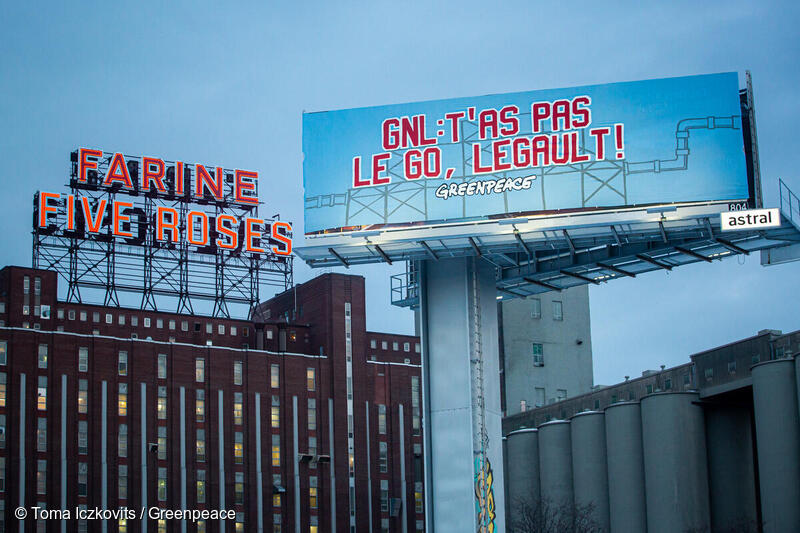
As a Greenpeace supporter, you — in coalition with other environmental organizations, community groups and First Nations — grew a movement that would eventually bring down the largest gas project ever proposed in Quebec. Designed as a three-in-one gas plant, marine export terminal, and pipeline project, the GNL Québec megaproject would have threatened the survival of the endangered St. Lawrence beluga whale, emitted as much pollution as 15 million cars every year for 25 years, and further delayed the green energy transition.
But no part of GNL Québec will see the light of day. That’s because this summer, Quebec Premier François Legault gave in to public pressure and rejected it.
And in another pipeline victory this past June, developers officially abandoned Keystone XL — an $8-billion cross-border pipeline meant to funnel over 800,000 barrels of Canadian crude oil per day along 1,897 kilometres of leak-prone pipelines.
This win came after over a decade of Indigenous-led grassroots resistance by frontline communities in both Canada and the United States, with Greenpeace supporters like you playing a key supporting role.
This is what people power looks like, and this is how we win.
Winning a historic court case against Shell
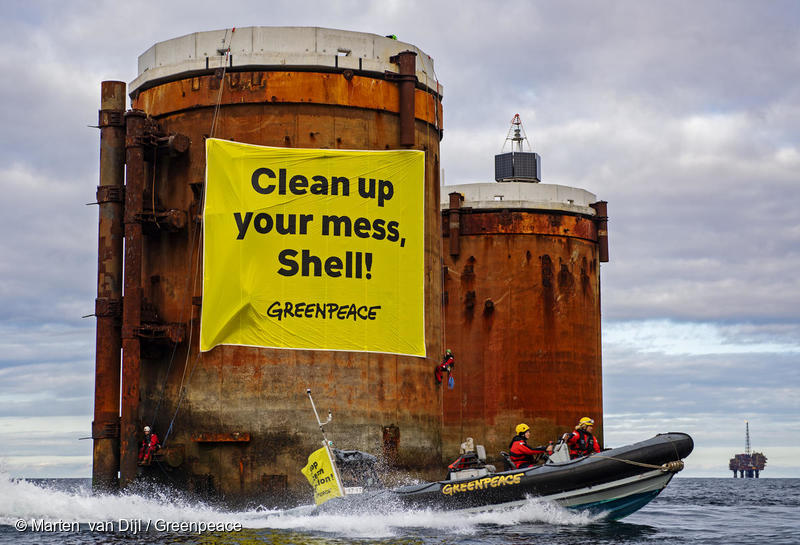
This year, Greenpeace Netherlands joined thousands of individual co-plaintiffs, Milieudefensie (Friends of the Earth Netherlands), and several other groups in landing a landmark legal victory against Shell.
The Dutch court’s ruling? Shell is liable for damaging the climate and must reduce its CO2 emissions by 45% for 2030, effective immediately.
It’s the first time in history that a major fossil fuel company has been held accountable for its contribution to climate change and made to drastically cut its emissions to help keep the planet within a 1.5 °C warming range. Shell is one of the 10 worst climate-polluting companies in the world and, to meet the court’s orders, will now have to radically reevaluate its entire business model.
You can be sure this ruling won’t be the last: more doors are opening for similar climate litigation outcomes around the world.
Getting Canada to categorize single-use plastics as “toxic”
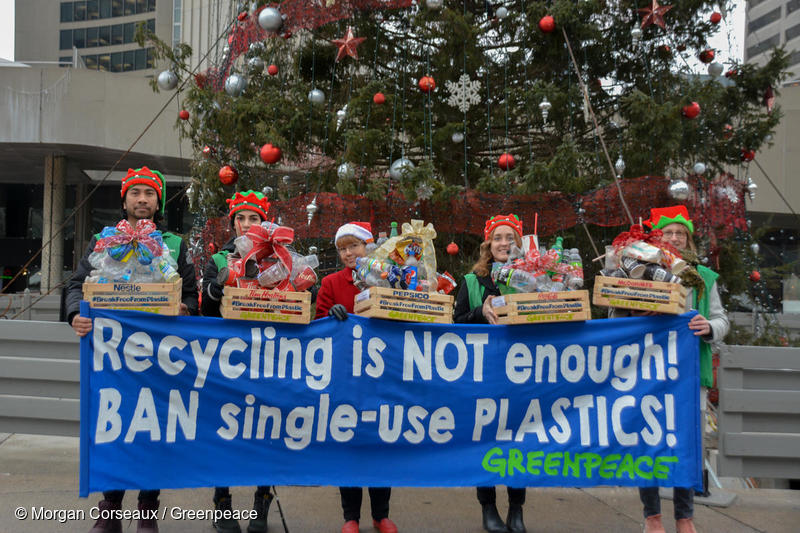
This past May, and after years of advocacy efforts by Greenpeacers like you and our allies at other organizations, Canada added plastic manufactured items to the toxic list under the Canadian Environmental Protection Act, and proposed a ban of six single-use plastic items.
Why is this significant? By officially recognizing how harmful these plastics are to the environment, the federal government can and must implement stronger plastics regulations in the future.
And Big Plastic knows it. They’re pushing back, but this win sends them a clear message: change is coming.
Next steps? Expanding the ban list to include a more comprehensive list of non-essential problematic plastics, stopping subsidies to the petrochemical and plastic sectors, and campaigning for investment in reuse and refill systems so we can accelerate our transition to a truly zero-waste economy instead.
Taking down the world’s first full-scale seabed mine
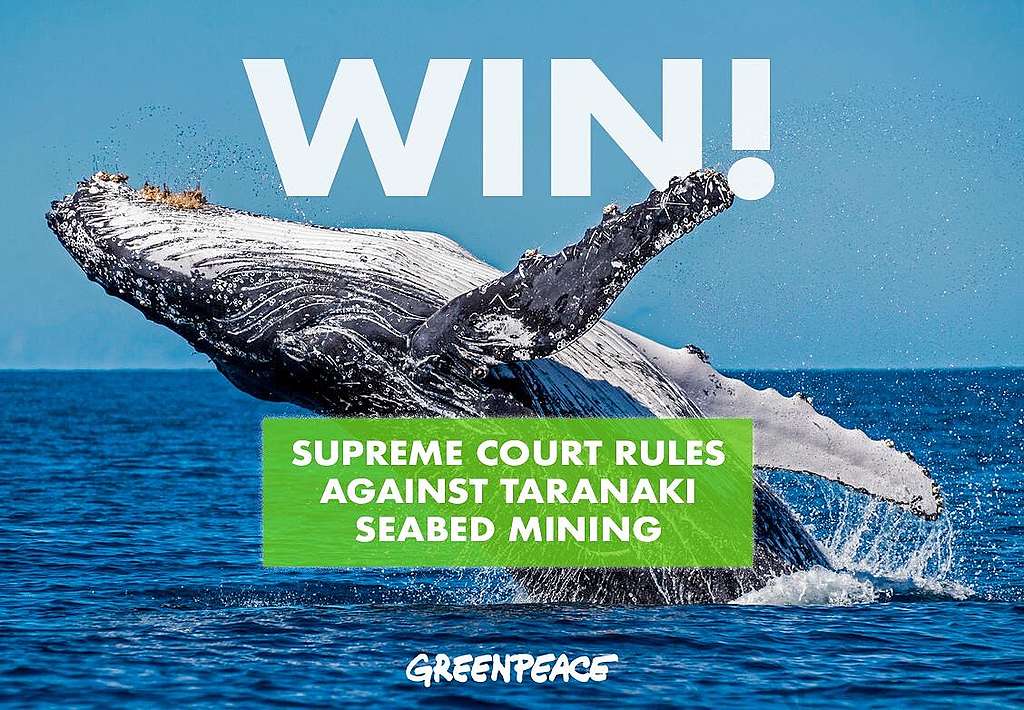
Together with local grassroots groups and Indigenous communities, the iwi and hapū of Aotearoa (Māori tribes and subtribes), you helped protect the oceans — stopping the first full-scale seabed mine in the world from being developed off the coast of New Zealand.
After defending the seabed and the interests of coastal communities before the New Zealand Supreme Court last year, Greenpeacers around the world celebrated the September ruling that effectively rendered the Trans Tasman Resources mining project dead in the water.[7]
This project would have been the first full-scale seabed mine in the world — a dangerous precedent that would likely have encouraged industry to pursue similar mining projects.
This was also a big win for Indigenous rights, as a key part of the ruling was the acknowledgement that Tikanga (traditional customs and values), should have been taken into account as part of the application process.
Amazing work!
Getting Canada to invest $30 billion in climate action
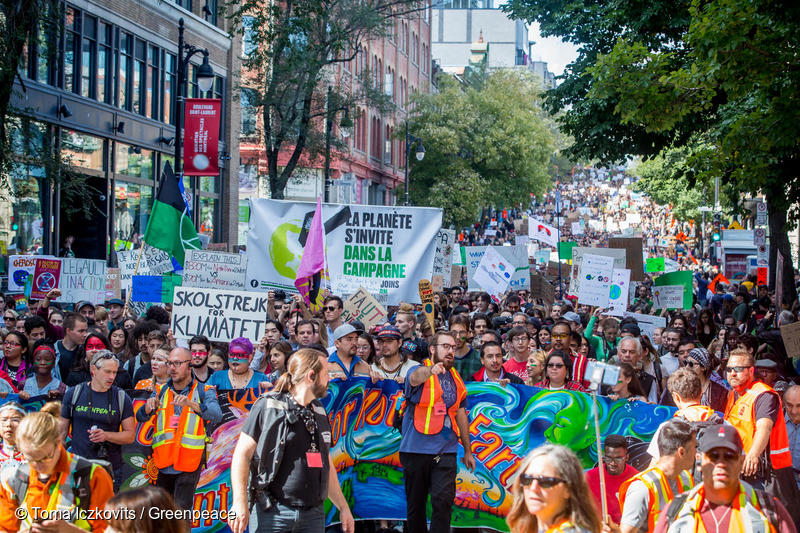
The last big economic crisis more than a decade ago taught us that governments resist changing “business as usual” unless pushed to do so by the public. But before the pandemic, business as usual was a crisis — as much for people as for the planet.
As a Greenpeace supporter, you were part of a broad mobilization effort that led to $30 billion in new funding for the climate in the 2021 Spring Budget.
Though not perfect, this new budget was an important first step in seizing the once-in-a-generation opportunity to build back better. To meet today’s crises head-on, Canada needs to rebuild our energy sector around renewables with support for workers, continue investing in stronger social safety nets, and address the social injustices that frontline communities face. Supporters like you made this important advocacy possible and, while our work is far from over, we’re starting to see progress.
So there you have it: five crucial environmental victories that Greenpeace supporters helped bring about this year.
As we chart out our plans for 2022, we hope that these victories inspire you to continue taking action with us.
Together, we can build a more green, peaceful and just world.

Discussion
Respecting your victory relating to single use plastics. The Cdn gov't has been talking about banning single use plastics for at least 2 years. So far they have done sweet *^@^ all about it!! It's a joke! If we accept that SUP's are toxic in the environment, something should be being done to curtail their use. Merely declaring them to be toxic does nothing to address the problem. The reality is that not only is nothing happening, on the contrary, during this period of time, their use has increased exponentially. You know this as well as I. How can you all not be cynical about the lip service these losers in Ottawa pay to the issue!!?? The inaction is blatantly obvious.